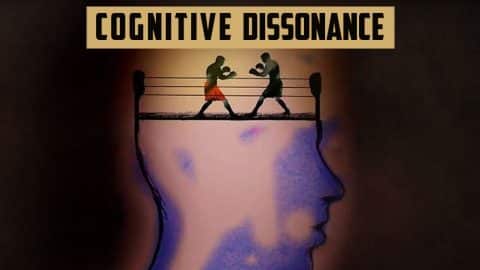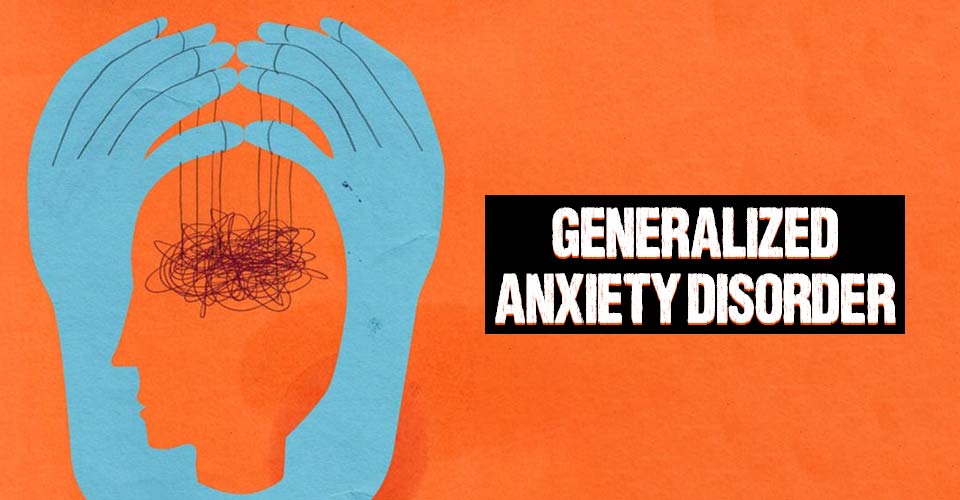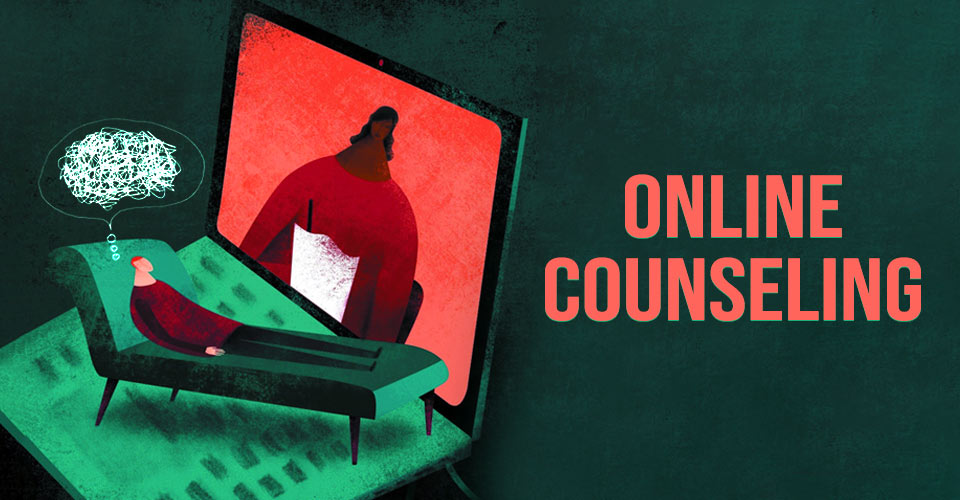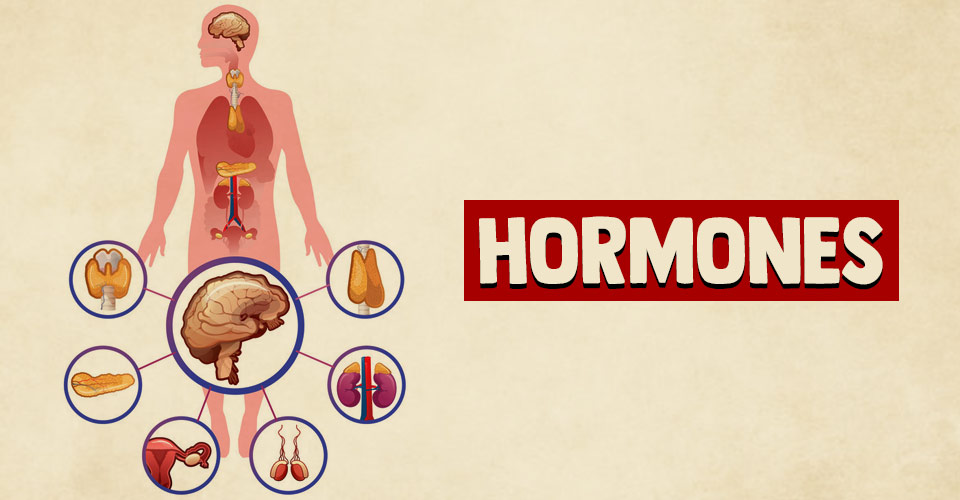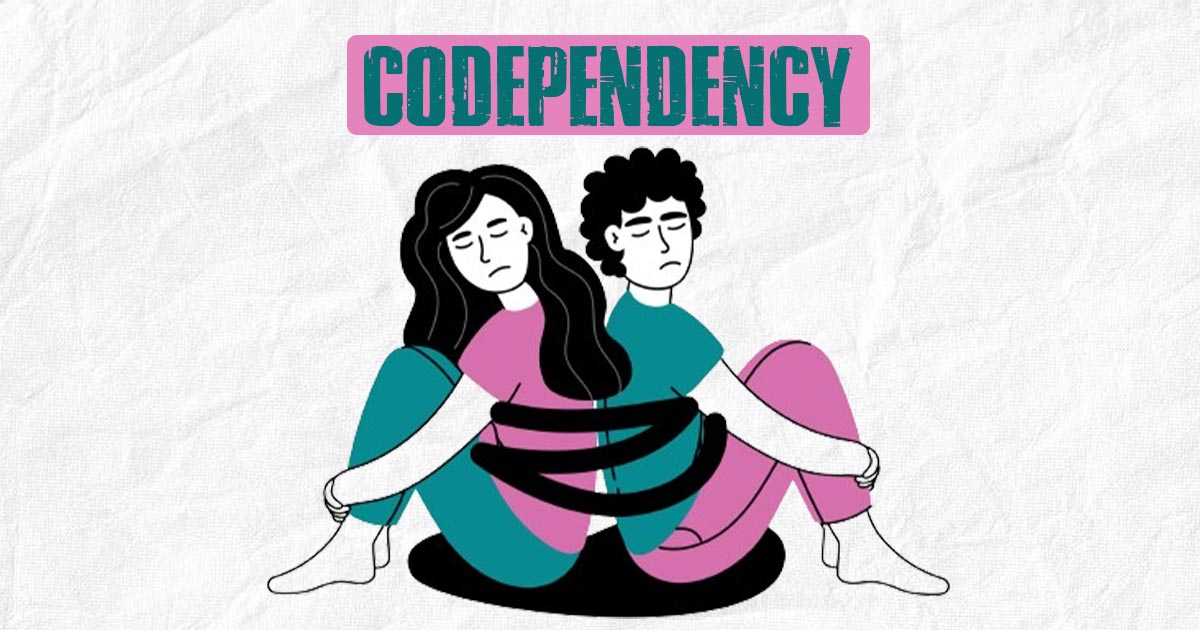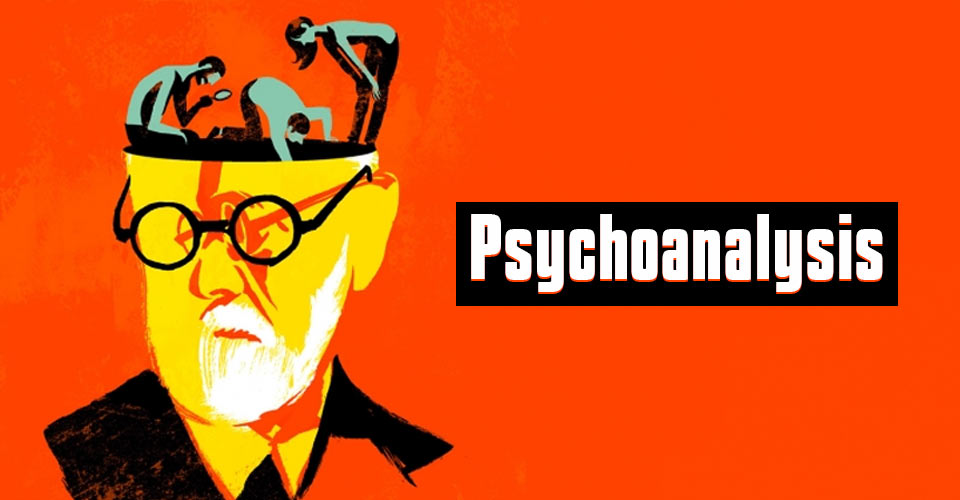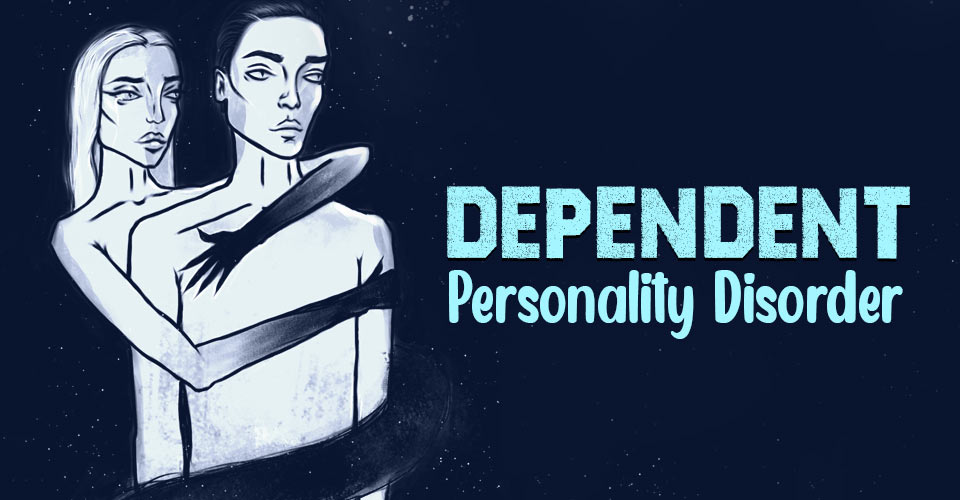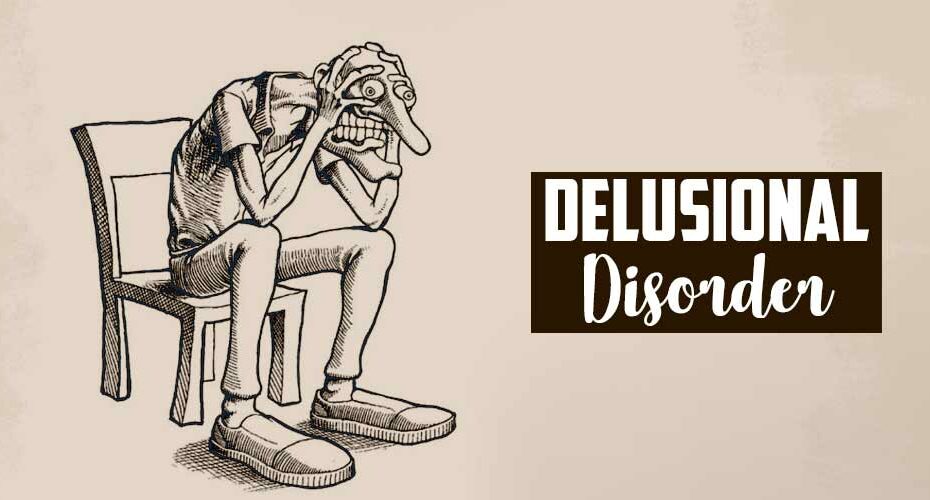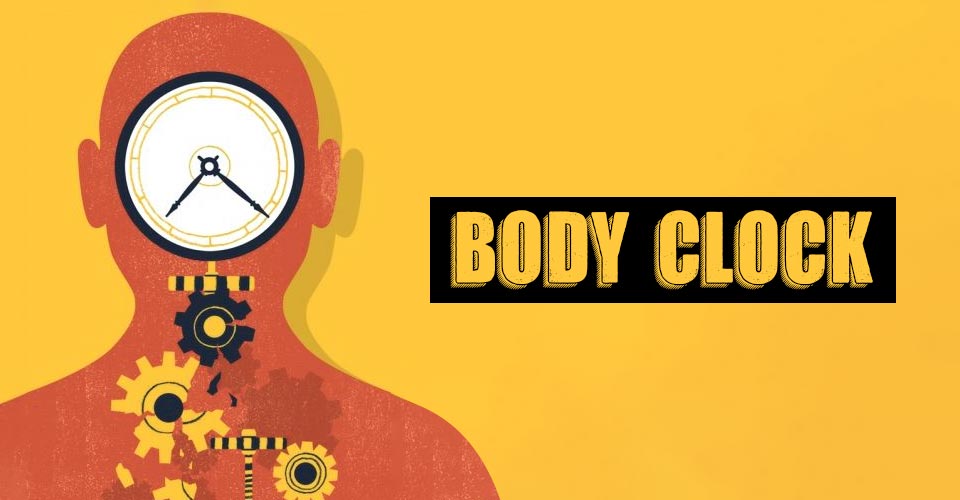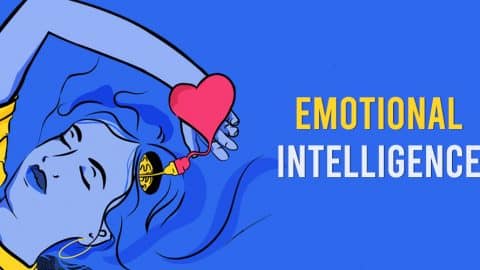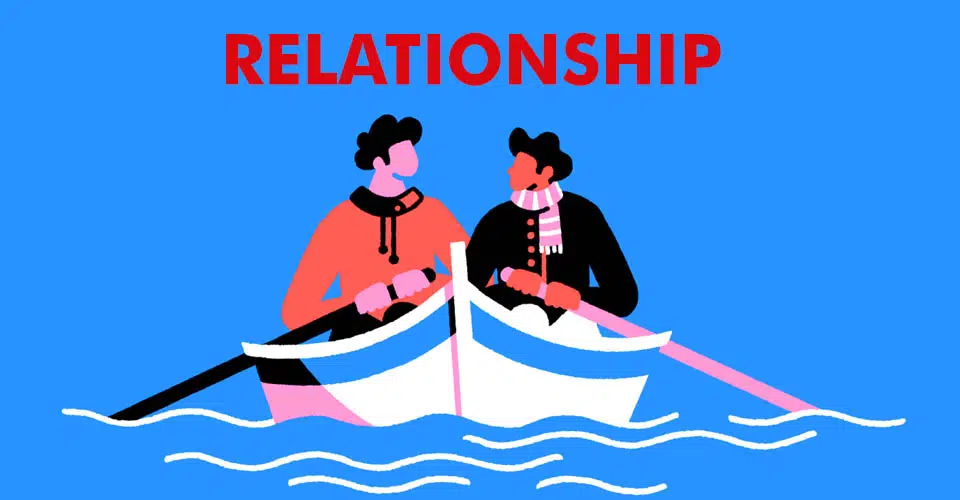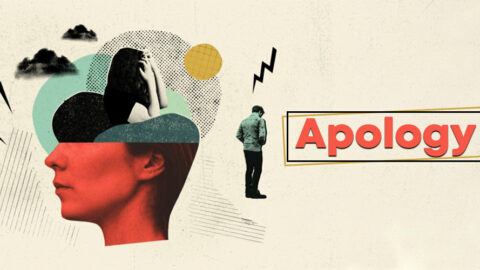Cognitive dissonance is the psychological discomfort that arises from holding conflicting beliefs, attitudes, or values. If addressed, it can significantly impact our mental health and relationships.
What Is Cognitive Dissonance?
Cognitive dissonance is a psychological term 1 Bran, A., & Vaidis, D. C. (2020). On the Characteristics of the Cognitive Dissonance State: Exploration Within the Pleasure Arousal Dominance Model. Psychologica Belgica, 60(1), 86–102. https://doi.org/10.5334/pb.517 that refers to the discomfort or tension that arises from holding contradictory beliefs, attitudes, or values, or when our actions conflict with our beliefs.
It occurs when individuals are confronted with information or situations that challenge their existing beliefs or attitudes, leading to a state of mental discomfort. This state of dissonance motivates individuals to reduce the inconsistency and restore cognitive harmony by either changing their beliefs, modifying their behavior, or rationalizing their thoughts and actions.
One of the common examples of cognitive dissonance can be observed in the context of smoking. Suppose an individual is aware of the harmful effects of smoking and holds the belief that it is detrimental to their health. However, this person continues to smoke regularly. This conflict between the belief that smoking is harmful and the behavior of smoking creates cognitive dissonance.
Prevalence Of Cognitive Dissonance
Limited data exists on the global prevalence, but nearly everyone experiences cognitive dissonance to some degree 2 Perlovsky L. (2013). A challenge to human evolution-cognitive dissonance. Frontiers in psychology, 4, 179. https://doi.org/10.3389/fpsyg.2013.00179 . This prevalence can vary across cultures and individuals due to factors like cultural values, education, and personal experiences.
Research also suggests that both men and women are susceptible, with women more likely to experience cognitive dissonance symptoms related to self-image or moral values, while men may experience it more regarding competence or abilities.
Cognitive Dissonance Symptoms
Research 3 Bran, A., & Vaidis, D. C. (2020). On the Characteristics of the Cognitive Dissonance State: Exploration Within the Pleasure Arousal Dominance Model. Psychologica Belgica, 60(1), 86–102. https://doi.org/10.5334/pb.517 attributes the common cognitive dissonance symptoms to the following:
- Mental discomfort or tension
- Selective attention and denial of contradictory information
- Rationalization and justification to reduce mental inconsistency
- Inconsistent decision-making
- Emotional distress and inner conflict
- Resistance to change
Read More About Decision-Making Here
Cognitive Dissonance And Mental Health
Cognitive dissonance and mental health are intricately related. Research 4 Bosone, L., Chevrier, M., & Zenasni, F. (2022). Consistent or inconsistent? The effects of inducing cognitive dissonance vs. cognitive consonance on the intention to engage in pro-environmental behaviors. Frontiers in psychology, 13, 902703. https://doi.org/10.3389/fpsyg.2022.902703 claims that cognitive dissonance causes:
- Stress, anxiety, and psychological distress due to conflicting beliefs or behaviors.
- Alterations in beliefs, attitudes, or actions to reduce cognitive dissonance.
- Disruptions in the sense of identity and stability.
- Negative rationalization and self-justification, that hinder personal growth and critical evaluation.
- Detrimental decision-making and conflict management that harms mental health.
- A mismatch between beliefs and actions that results in negative self-image, guilt, shame, and lowered self-esteem.
- Impaired problem-solving and critical thinking, leading to biases and limited flexibility in evaluating information.
Read More About Anxiety Here
Cognitive Dissonance In Relationships
Cognitive dissonance in relationships refers to the psychological discomfort that arises when there is a discrepancy between our beliefs, attitudes, or values and the actions or behaviors within the relationship. It can occur when individuals experience conflicts in their expectations, desires, or perceptions of their partner.
Cognitive dissonance in relationships often leads to tension, confusion, and emotional discomfort 5 Goodfriend, W., & Arriaga, X. B. (2018). Cognitive Reframing of Intimate Partner Aggression: Social and Contextual Influences. International journal of environmental research and public health, 15(11), 2464. https://doi.org/10.3390/ijerph15112464 as individuals struggle to reconcile the inconsistencies. Measures on how to reduce cognitive dissonance in relationships often involve:
- Open communication
- Self-reflection
- A willingness to adapt and compromise
- Making the effort to address conflicting beliefs
- Developing strategies to maintain a harmonious and satisfying relationship
Types Of Cognitive Dissonance
Research 6 Draycott, S., & Dabbs, A. (1998). Cognitive dissonance. 1: An overview of the literature and its integration into theory and practice in clinical psychology. The British journal of clinical psychology, 37(3), 341–353. https://doi.org/10.1111/j.2044-8260.1998.tb01390.x attributes the common types of cognitive dissonance to the following:
- Post-decisional dissonance occurs when discomfort arises after making a decision, causing individuals to focus on negative aspects or alternative choices.
- Induced compliance dissonance arises when individuals are forced to act against their beliefs, leading to discomfort and attitude adjustment.
- Effort-justification dissonance occurs when individuals justify their unpleasant or difficult tasks by adjusting their attitudes or beliefs.
- Belief disconfirmation involves discomfort and potential attitude change when encountering information contradicting existing beliefs.
- Free-choice dissonance arises when individuals struggle with doubts or discomfort after choosing between equally attractive alternatives.
- Self-perception dissonance occurs when individuals adjust their self-perception based on their behavior or actions.
Causes Of Cognitive Dissonance
Studies 7 Izuma, K., Matsumoto, M., Murayama, K., Samejima, K., Sadato, N., & Matsumoto, K. (2010). Neural correlates of cognitive dissonance and choice-induced preference change. Proceedings of the National Academy of Sciences of the United States of America, 107(51), 22014–22019. https://doi.org/10.1073/pnas.1011879108 attribute the major causes of cognitive dissonance to the following factors:
- Inconsistency between beliefs and actions
- Decision-making conflict
- Exposure to contradictory information
- Insufficient justification
- A lack of effort and commitment
- Social pressure and conformity
- Conflicted self-perception and identity
- Emotional discomfort
- A lack of information or knowledge about a situation
How To Overcome Cognitive Dissonance
Consider the following measures 8 Balcetis, E., & Dunning, D. (2007). Cognitive dissonance and the perception of natural environments. Psychological science, 18(10), 917–921. https://doi.org/10.1111/j.1467-9280.2007.02000.x on how to overcome cognitive dissonance if you think you are suffering from its symptoms:
- Regularly assess and reflect on your beliefs and attitudes to ensure they align with your actions and behaviors.
- Actively seek out information and knowledge to enhance your understanding of different perspectives and reduce the likelihood of contradictory information.
- Gather all relevant information before making decisions to reduce the chances of post-decisional dissonance.
- When engaging in behaviors that may contradict your beliefs, find external justifications or reasons that can provide a sense of consistency and reduce cognitive dissonance.
- Be open-minded and willing to revise or adjust your beliefs and attitudes when presented with new evidence or perspectives.
- Interact with individuals who hold different opinions and perspectives to challenge and broaden your understanding, reducing the likelihood of cognitive dissonance.
- Regularly reflect on your thoughts, behaviors, and actions to identify any inconsistencies and take steps to align them with your beliefs and values.
- Develop the ability to hold multiple perspectives and tolerate ambiguity, allowing for a more adaptable and harmonious mindset.
- Gain a deeper understanding of your own beliefs, values, and biases to recognize when cognitive dissonance arises and address it proactively.
- Engage in conversations and discussions with trusted individuals who can provide support, guidance, and differing viewpoints to help you navigate cognitive dissonance.
Takeaway
Understanding cognitive dissonance and how to reduce cognitive dissonance help us to recognize the inconsistencies within ourselves and society. This approach also entails personal growth and critical evaluation.
By actively seeking knowledge, engaging in open communication, and embracing cognitive flexibility, we can reduce cognitive dissonance and strive for a more coherent and harmonious mindset. Overcoming cognitive dissonance is a continual process that empowers us to align our beliefs, actions, and values, fostering personal well-being and interpersonal harmony.
At A Glance
- Cognitive dissonance is the discomfort arising from conflicting beliefs or actions.
- Cognitive dissonance and mental health are inversely related, often causing stress, anxiety, etc.
- Cognitive dissonance in relationships leads to tension and confusion.
- Overcoming cognitive dissonance involves self-reflection, open communication, and adapting beliefs.
- Types of cognitive dissonance include post-decisional, induced compliance, and effort-justification dissonance.
- Causes of cognitive dissonance include inconsistency, exposure to contradictory information, and social pressure.
- On how to overcome cognitive dissonance, experts suggest evaluating beliefs, seeking knowledge, and informed decision-making.
Frequently Asked Questions (FAQs)
1. What are the 7 signs of cognitive dissonance?
The 7 signs of cognitive dissonance can include stress, denial of contradictory information, rationalization, inconsistent decision-making, emotional distress, resistance to change, and a negative self-image.
2. Can cognitive dissonance change behavior?
Yes, cognitive dissonance can change behavior as individuals often seek to reduce the discomfort caused by conflicting beliefs or values by altering their attitudes or actions.
3. Why is self-cognitive dissonance hard to recognize?
Self-cognitive dissonance can be hard to recognize because it involves a discrepancy between one’s self-image and their actual thoughts or behavior, which can be challenging to acknowledge or accept.

